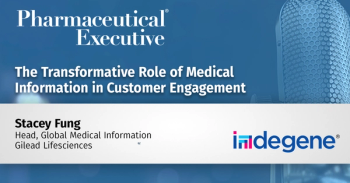
Patient Safety Needs Modernization. Now
In this podcast, co-founder and CTO of Emulate, Inc, discusses why now is the time for researchers to accelerate their transition from animal models to human relevant-science with Organ-on-chip technology. There is no doubt that animal models have contributed to major advances in medicine, however, a growing body of evidence suggests that animal models are seriously lacking in both sensitivity and specificity when it comes to predicting drug toxicity in humans. In a recent study published to bioRxiv, researchers found the human Liver-Chip to have an 87% sensitivity and 100% specificity when differentiating hepatotoxic from non-hepatotoxic small molecules. Importantly, all 22 hepatotoxic drugs included in the study had previously been classified as safe due to a lack of toxicity in animal models. Collectively, these compounds resulted in 208 patient fatalities and 10 liver transplants. Had the human Liver-Chip been used during preclinical screening of these compounds, it’s likely that many of these fatalities could have been avoided. By adopting organ-on-a-chip, you can help make the drug development process safer, more efficient and more humane.
Newsletter
Lead with insight with the Pharmaceutical Executive newsletter, featuring strategic analysis, leadership trends, and market intelligence for biopharma decision-makers.
Related Content





